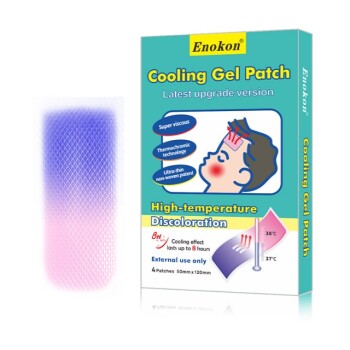Before using the contraceptive patch, it is essential to have a comprehensive discussion with your healthcare provider about your complete medical history, all medications and supplements you take, and key lifestyle factors. This conversation is designed to evaluate your personal health risks, particularly concerning blood clots, cardiovascular issues, and hormone-sensitive conditions, to determine if the patch is a safe and appropriate choice for you.
The core purpose of this conversation is not just a formality; it is a critical risk assessment. Your provider needs a complete picture of your health to weigh the benefits of the patch against potential dangers, ensuring the hormonal exposure is safe for your specific biological profile.

Why a Detailed Medical History is Non-Negotiable
The hormones in the patch, estrogen and progestin, can affect various systems in your body. A thorough review of your past and present health is the primary way to identify potential contraindications.
Cardiovascular and Clotting Risks
This is the most serious area of concern. Be sure to report any personal or family history of blood clots, blood vessel disease, stroke, or a heart attack.
You must also discuss conditions that increase cardiovascular risk, such as high blood pressure, high cholesterol or triglycerides, heart valve problems, or an irregular heartbeat.
Hormone-Sensitive Cancers
Because the patch releases hormones, a history of certain cancers is a critical disclosure. This includes cancer of the breast, uterus, cervix, ovaries, or liver.
Liver, Kidney, and Gallbladder Function
These organs are crucial for processing hormones and other substances in your body. Inform your provider of any history of liver disease (including jaundice), kidney disease, or gallbladder disease.
Migraines and Neurological Conditions
A history of migraine headaches, especially migraines with aura, can increase the risk of stroke when combined with hormonal contraceptives. Also, mention conditions like systemic lupus erythematosus (SLE).
Other Key Conditions
Several other conditions can be affected by hormonal changes. It is vital to discuss a history of diabetes, unexplained abnormal vaginal bleeding, or recent pregnancy, miscarriage, or abortion.
Reviewing Your Full Medication and Supplement List
Some substances can interfere with the effectiveness of the patch or increase health risks. Your provider needs a complete list to check for interactions.
Prescription and Over-the-Counter Drugs
Provide a list of all medications you are currently taking. Certain drugs, including some antibiotics and anticonvulsants, can reduce the contraceptive efficacy of the patch.
Allergies and Sensitivities
Inform your doctor of any known allergies, especially to hormonal medications, adhesives, or other patch components.
Understanding the Trade-offs and Special Circumstances
Lifestyle factors and planned medical procedures can directly impact the safety and use of the patch.
The Critical Impact of Smoking
Your smoking status is a non-negotiable topic. Smoking, especially if you are over 35, dramatically increases the risk of serious cardiovascular events like blood clots, heart attack, and stroke when using hormonal birth control.
Upcoming Surgeries or Procedures
If you have a scheduled surgery, you may need to stop using the patch for a period beforehand to reduce the risk of blood clots. Also, inform your care team you are using a patch if you are scheduled for an MRI, CT scan, or other procedure.
Pregnancy and Breastfeeding
You should not use the patch if you are pregnant or suspect you might be. It is also typically not recommended for use while breastfeeding.
How to Prepare for Your Appointment
Use your appointment to build a clear, shared understanding of your health profile. A prepared patient is an empowered one.
- If your primary focus is safety due to a history of blood clots or heart issues: The patch is likely not the right method for you, and your discussion should focus on non-hormonal alternatives.
- If you are a smoker over the age of 35: Be aware that your provider will strongly advise against the patch due to significantly elevated health risks.
- If you have a complex medical history or take multiple medications: Write down every condition, medication, and supplement you take before your appointment to ensure nothing is missed.
This thorough conversation empowers you and your provider to confidently select the safest and most effective contraceptive for your body.
Summary Table:
| Key Discussion Topic | Specific Examples to Mention |
|---|---|
| Medical History | Blood clots, heart conditions, high blood pressure, stroke, hormone-sensitive cancers (breast, uterus), liver/kidney/gallbladder disease, migraines (especially with aura), diabetes, unexplained vaginal bleeding. |
| Medications & Supplements | All prescription drugs, over-the-counter medications, and herbal supplements. |
| Lifestyle Factors | Smoking status (critical if over 35), upcoming surgeries or medical procedures, current or suspected pregnancy, breastfeeding. |
| Allergies | Known allergies to hormones, adhesives, or other patch components. |
Are you a healthcare distributor or brand looking for a reliable manufacturing partner for transdermal patches?
At Enokon, we are a bulk manufacturer of reliable transdermal patches and pain plasters. We understand the critical importance of safety, efficacy, and precise hormone delivery that you require for your products.
Partner with us to benefit from:
- Custom R&D and Development: Our technical expertise ensures your patches meet specific therapeutic goals and regulatory standards.
- Reliable, High-Quality Manufacturing: We deliver consistent, large-scale production you can trust for your healthcare or pharmaceutical brand.
Contact our experts today to discuss your custom transdermal patch needs and development projects.
Visual Guide

Related Products
- Herbal Eye Protection Patch Eye Patch
- Mugwort Wormwood Pain Relief Patch for Neck Pain
- Menthol Gel Pain Relief Patch
- Icy Hot Menthol Medicine Pain Relief Patch
- Capsaicin Chili Medicated Pain Relief Patches
People Also Ask
- What are the main benefits of using eye patches in a skincare routine? Revitalize Your Under-Eye Area
- What factors should be considered when purchasing eye patches? Essential Guide for Safe & Effective Use
- Should under eye patches be applied before or after moisturizer? Optimize Your Skincare Routine
- How can using eye patches contribute to a self-care skincare routine? Boost Hydration & Relaxation
- How quickly can you see results from using under eye patches? Instant Brightening & Long-Term Benefits
















